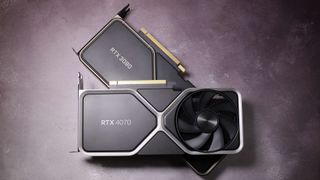Windows Copilot gets its artificial tendrils deeper into the OS settings in a new beta update
And, for once, some of what it can do looks genuinely useful.

Microsoft's virtual assistants have somewhat of a chequered history. Bob, Clippy, and Cortana have all come and gone over the years. Copilot is the latest darling and in a recent update to the beta versions of Windows, it's been given a wider remit of what it can do, and along with a new plugin for it, you can use Copilot to rename a bunch of files, clean up your storage drives, or tell you your IP address.
I stopped using a Canary/Dev version of Windows a while ago, so picked up the details of the update elsewhere (via Sweclockers), and while I'm not alone in having a dim view of Copilot in the PC Gamer office, it's still interesting to see how it's being improved.
You can already use Copilot to do things like snap application windows, take a screenshot, or toggle between themes, but these are all tasks that are simple to do by yourself: Just press the right keys or go through a couple of clicks in the Start Menu and you're done. What virtual assistants need to do are tasks that are either too complex for the average user to manage or are just too fiddly or time-consuming to be bothered with.
That's what the new updates to Copilot have added, although to get the most out of them, one needs to install a plugin called Power Automate. With that on your PC, you can activate the plugin in Copilot's settings and then handle tasks such as renaming or moving all files in a given folder, or even splitting a PDF into multiple sections.
Without Power Automate, Copilot still gains some additional basic functions, such as emptying the recycle bin and toggling battery saver mode on laptops. However, there are some extra accessibility tasks, like enabling the magnifier or changing text size, which may be useful to PC users with limited vision.

Best CPU for gaming: The top chips from Intel and AMD.
Best gaming motherboard: The right boards.
Best graphics card: Your perfect pixel-pusher awaits.
Best SSD for gaming: Get into the game ahead of the rest.
Older virtual assistants could do similar things, though they weren't always very quick or reliable about it. Having road-tested what the current public version of Copilot can manage, I'm cautiously optimistic that it could eventually be the tool that Microsoft dreamed about all those years ago when it gave us Clippy.
Having said that, I do wonder about the amount of computing power required to run Copilot behind the scenes and how the cost of developing the software and running the mountain of AI computers will get passed on to the consumer. Copilot is currently free to use, though there is a subscription fee if you need generative capabilities, but that may not be the case in the future.
The biggest gaming news, reviews and hardware deals
Keep up to date with the most important stories and the best deals, as picked by the PC Gamer team.
Copilot is here to stay for the foreseeable future and it's clear that it's going to become an integral part of Windows, and the next big update will probably heavily focus on the integration of AI in your everyday OS. Let's just hope that we'll always have the option to disable it so that those of us who can use a PC without any artificial hand-holding can spare the rest of the world a bit of the cost of running it.

Nick, gaming, and computers all first met in 1981, with the love affair starting on a Sinclair ZX81 in kit form and a book on ZX Basic. He ended up becoming a physics and IT teacher, but by the late 1990s decided it was time to cut his teeth writing for a long defunct UK tech site. He went on to do the same at Madonion, helping to write the help files for 3DMark and PCMark. After a short stint working at Beyond3D.com, Nick joined Futuremark (MadOnion rebranded) full-time, as editor-in-chief for its gaming and hardware section, YouGamers. After the site shutdown, he became an engineering and computing lecturer for many years, but missed the writing bug. Cue four years at TechSpot.com and over 100 long articles on anything and everything. He freely admits to being far too obsessed with GPUs and open world grindy RPGs, but who isn't these days?
Most Popular






